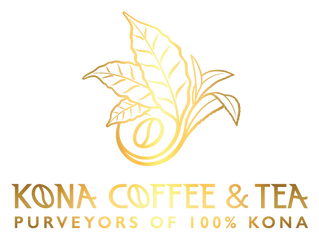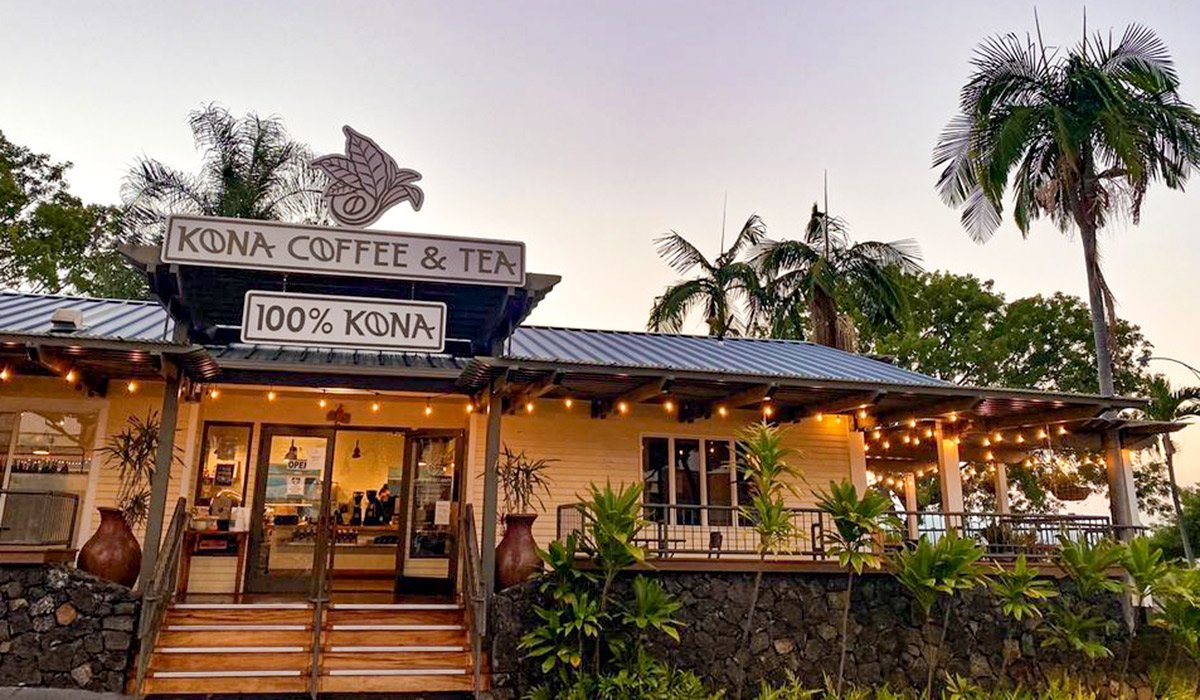What is Specialty Coffee?
First used in 1974, the term “specialty coffee” came about as a way to differentiate coffee beans that expressed qualities, taste, and origins that were above and beyond the current status quo. We’ll explore what makes “specialty coffee” so special below.
In the late 1980s and early 1990s, a new coffee culture emerged, and with it brought a more holistic understanding of the history and process of coffee beans. Tracking and tracing of coffee origins, farming practices, human rights, and more were open and available to the public for the first time, allowing people to make informed coffee drinking decisions based on their personal values and tastes.
No longer would terms like “bold” or “refreshing” be enough to entice sales. Almost overnight the coffee industry was inundated with countless new terms and certifications; “Rain-forest alliance”, “organic”, “certified fair-trade”... The list goes on and on. Below we include a short glossary of some of the more popular terms used today. For this post, we are going to focus on the term “specialty” and what it means in the current coffee environment.
First used in 1974, the term “specialty coffee” came about as a way to differentiate coffee beans that expressed qualities, taste, and origins that were above and beyond the current status quo. Beans that were, at the time, well beyond the current staple coffees that mostly consisted of cheap, mass-produced, and questionably sourced, virtually untraceable coffees. The term “specialty” came from the essential need to distinctively distinguish coffees of exceptional quality from the “daily grind”.
.
SPECIALTY COFFEE ASSOCIATION
Today, that need, though tapered, still exists. Though there is no one authority or official certification process for” specialty” coffee, the Specialty Coffee Association has become an overwhelming authority on all things “specialty coffee”. Their website lists criteria they find essential if you wish to truly identify a coffee as “specialty”. Specialty coffee should be, and it almost goes without saying, of the highest quality. There should be practically no discernible defects in the coffee and the beans should exhibit size and density associated with a healthy harvest pertaining to the specific variety and growing region. This quality indicator should be measurable and ideally be integrated into farming and processing practices.
By nature, specialty coffees are grown in areas that offer optimal conditions for coffee such as ample, but not excessive precipitation, proper altitude, slope, and sunlight. All are essential for a healthy, high-quality crop. Following optimal growing conditions, consistent farm practices and precise processing are equally crucial. Ideally, farmers either control the processing facilities themselves or they have a trustworthy relationship with a local producer that shares their high standards. Since every harvest is unique, it is important that processors and growers are constantly communicating with each other. Single estate farms that do their own processing are at an advantage in this aspect as they are involved in the process from start to finish and can quickly and efficiently shift and adjust methods as needed.
Specialty coffee enthusiasts look for a clear supply chain reflecting precise and specific details about the plant varietal, growing region, estate details, and processors. They also want to be able to verify quality control measures and are also often interested in fair wages and financial compensation to workers, farms, and processors alike. The long term viability of the farm and continuing consistency, are highly dependent upon farmers and laborers being fairly compensated. The human factor is often overlooked with regard to specialty coffee but continues to garner more importance over time. Many coffee buyers have teamed up with growers to work in tandem to create quality coffees meeting exacting standards highly prized by the industry.
You may think that specialty coffee should come down to taste alone and that proper farming and processing practices are a given prerequisite for high scoring coffee. Though true in many ways, the taste alone argument disregards the passion and commitment of the coffee community to grow together, support, and foster open communication and dialog throughout the industry. In order for the specialty coffee industry to remain relevant, the ability to track and trace coffees and processors remains essential. Thus, the “story” of the coffee leading up to the final cup is of equal importance to taste.
CUPPING COFFEE
That being said, let’s look at taste. The Specialty Coffee Association has a standardized method for cupping (tasting) and scoring coffees. They have trained countless individuals in their methods and those individuals have in turn have trained countless more. What results is a somewhat universally recognized process for determining the quality of a coffee at the final stage, the brewing process. We won’t get too much into details about the process of cupping and scoring coffee here, suffice to say there is a system that scores coffee based on multiple criteria such as aroma, sweetness, body, acidity, etc. Coffees that score an 82 or above are said to meet the required cupping values to be classified as specialty coffee. Only coffees free of defects, flaws, growing or processing neglect and of the highest quality, will receive a score of 82 or more.
The scoring process is essential feedback for coffee purchasers as well as growers. Farms can adjust their processing and make necessary adjustments to their farming practices when presented with this information. Buyers can better assign value and thus reward farmers and producers for high-quality products, encouraging the overall market to strive for continual improvement and constant vigilance in all areas of growth and production, creating a positive feedback loop that ideally brings about an overall market improvement.
KONA COFFEE & TEA AND SPECIALTY COFFEE
Kona Coffee & Tea meets and excels in all criteria of Specialty Coffee. Kona Coffee itself has long been highly regulated. You can visit our blog post on Kona coffee grading to learn more about the stringent quality standards and grading process associated with 100% Kona Coffee. Kona Coffee & Tea uses only the highest-grade 100% Kona coffee from our estate farm.
VIDEO: Ike Huffman, Hale Creative Co.
Aside from the high standards regulating the Kona coffee industry, Kona Coffee & Tea imposes stringent quality standards of our own at every level of production from seed to cup. We control every aspect of the process and do not rely on third parties for processing, roasting, packaging, or shipping. As a purchaser of Kona Coffee & Tea 100% Kona coffee, you know that you are receiving freshly roasted, 100% farm to cup Kona coffee of the highest quality. Our coffees consistently score highly and we continue to garner awards and recognition from our community and coffee lovers worldwide.
We pride ourselves on providing opportunities for all of you to deepen your knowledge and education of all things 100% Kona, coffee, and beyond. If you are interested in learning more, check out more of the 100% Kona blog . You will find an ever growing resource dedicated to growing the 100% Kona coffee community through knowledge and passion. To purchase Kona Coffee & Tea 100% Kona Coffee, visit our online shop and consider signing up for auto-ship. Subscribers save 10% on their coffee subscription orders.
WHAT’S THE DIFFERENCE BETWEEN 100% KONA COFFEE ROASTS?
Generally, lighter roasts offer more fruit flavors and pop, while the darker roasts bring in more richness and depth. Even with our farm, milling, and roasting remaining consistent, annual changes in weather and other growing conditions subtly change the flavors found in the final cup. Click here to see what we’ve found in the current crop.
Our 100% Kona Light roasted coffee can be said to be the truest expression of Terra (growing conditions, etc) of the Kona Coffee Belt. People that favor light roasts tend to appreciate the brighter and more fruity flavors that highlight the characteristics of the growing region at the forefront. When it comes to brewing, light roasted coffees tend to require a more exacting technique and recipe.
Kona Coffee & Tea Medium roast is the most popular of our roasts and not surprisingly so. The Medium roast offers an optimal mix of terra and roast profiles. There tends to be less brightness than in light roasts while also offering the depth and complexity brought about by the roast profile.
Dark roasts are rich with flavors acquired through the roasting process. Here you will see less bright flavors and more deep, dark flavors like cocoa or roasted nuts. You may lose some body in the darker roasts but not a lot and switching to a French Press or similar immersion method of brewing will more than make up for that. Dark roasts are generally sweeter tasting and often welcoming to the addition of cream or milk.
Specialty or not? What do you care about when choosing your morning cup?
Let us know by commenting below or on social media @konacoffeeandtea
CONTRIBUTOR: MIKE CUBBAGE
HOW I LIKE MY COFFEE: Medium Roast Black
NEW QUARANTINE HOBBY: Bee keeping
I've been involved in the coffee industry for about 16 years. I've been a barista for many years, then a trainer and consultant. I am big on sharing relevant knowledge that will help coffee lovers have the optimal coffee experience. Working with Kona Coffee & Tea Company is like a dream come true. I can't say how rewarding it is to work with such a great product from seed to cup. From the very beginning, being part of the team here, I've felt like family and have been treated like family. The spirit of Aloha is strong as is their dedication to community and quality.





































